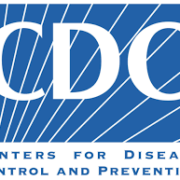The following is the latest health policy news from the federal government for the week of October 14 to October 20. Some of the language used below is taken directly from government documents.
 White House
White House
- President Biden has signed an executive order on lowering prescription drug costs. The order directs HHS to consider additional actions to further drive down prescription drug costs, encourages it to pursue such actions through its Center for Medicare and Medicaid Innovation (CMMI), and directs HHS to submit a formal report within 90 days outlining any plans to use CMMI’s authority to lower drug costs and promote access to innovative drug therapies for Medicare beneficiaries. Find the executive order here and a fact sheet elaborating on that order here.
- The White House has released a new “National Biodefense Strategy and Implementation Plan for Countering Biological Threats, Enhancing Pandemic Preparedness, and Achieving Global Health Security.” Find the plan here; learn more about its objectives and how the administration plans to go about fulfilling them from this White House news release; and about the role of the Department of Health and Human Services from this HHS news release.
Federal Emergency Management Agency (FEMA)
- The availability of COVID-19-related benefits from numerous federal sources has led FEMA to issue guidelines on patient care revenue duplication of benefits to ensure that benefits are not duplicated and that the federal government does not pay more than once for a given benefit. Find those guidelines here.
No Surprises Act
- HHS and the other federal agencies involved in the implementation of the No Surprises Act have updated the independent dispute resolution notice of initiation web form. The new form replaces previous methods for submitting notice of offers to No Surprises Act independent dispute resolution entities. Learn more from this CMS notice; from this instruction manual; and from this CMS video.
Provider Relief Fund
- HHS’s Health Resources and Services Administration (HRSA) has updated its Provider Relief Fund FAQ with three changes: two new questions and one modified answer addressing reporting and auditing requirements. Find them here, on page 19.
 Centers for Medicare & Medicaid Services
Centers for Medicare & Medicaid Services
- CMS has announced that its Bundled Payments for Care Improvement Advanced (BPCI Advanced) Model will be extended for two years. CMS plans to issue a Request for Applications in early 2023 for Medicare-enrolled providers and suppliers and Medicare accountable care organizations to participate in the model’s two-year extension (2024-2025); new applicants will be welcome. Learn more about the program and eligibility requirements for participating in the program’s extension from the BPCI Advanced web page.
- CMS has published two new documents to help states prepare for the end of the COVID-19 public health emergency, and in particular, the expansion of Medicaid eligibility during that period. Learn more about the work ahead of state agencies and how it may affect providers in these two documents:
- The latest edition of MLN Connects, CMS’s online newsletter with information about Medicare reimbursement matters, includes items on 2023 Medicare deductibles, coinsurance, and premiums, corrected DMEPOS (Durable Medical Equipment, Prosthetics, Orthotics, & Supplies) fee schedule amounts, the 2023 ambulance inflation factor and productivity adjustment, and more. Find it here.
- CMS has updated previously published information on updated home health claim grouper edits that take effect on April 1, 2023. Find the CMS notice here.
- CMS has approved Medicaid section 1115 demonstration initiatives in Arizona that seek to help the state address health-related social needs. Arizona’s demonstration will test innovative interventions that target critical drivers of health outcomes, especially housing insecurity. Learn more from this HHS news release.
Department of Health and Human Services
- HHS and its Substance Abuse and Mental Health Services Administration (SAMHSA) have announced a new funding opportunity through which they will award $15 million for Certified Community Behavioral Health Clinics planning. These new resources will expand access to planning grants for this purpose to all 50 states. In early 2023, up to 15 states will be awarded up to $1 million for one-year planning grants and 10 of those states will be selected to be in the actual Certified Community Behavioral Health Clinics demonstration starting in 2024. Learn more about the program and the funding from this HHS news release and from the HHS/SAMHSA notice of funding opportunity. Only state agencies are eligible for these grants.
- Surgeon General Dr. Vivek Murthy has released a new framework for mental health and well-being outlining the foundational role that workplaces should play in promoting the health and well-being of workers and communities. Learn more from this HHS news release; this overview of the framework; and the framework document itself.
- HHS’s Agency for Healthcare Research and Quality (AHRQ) has developed a new toolkit to help ambulatory care practices improve antibiotic use by applying a novel framework that simplifies the antibiotic prescribing process. Learn more here.
- AHRQ has published a report on differences in hospital stays with operating rooms procedures by patient race and ethnicity in 2019.
- AHRQ has published a statistical brief on changes in emergency department visits during the initial period (April-December of 2020) of the COVID-19 pandemic.
Department of Agriculture
- The Department of Agriculture has awarded $110 million in grants to help 208 rural health care organizations expand critical services for nearly five million people in 43 states. The grants will help build, renovate, and equip health care facilities like hospitals and clinics in rural areas; help rural hospitals and providers implement telehealth and nutrition assistance programs; increase staffing to administer COVID-19 vaccines and testing; and purchase medical supplies. Learn more from this Department of Agriculture news release and find a list of grant recipients here.
 Centers for Disease Control and Prevention
Centers for Disease Control and Prevention
- The CDC has authorized the Novavax monovalent COVID-19 boosters for adults. This action gives people ages 18 years and older the option to receive a Novavax monovalent booster instead of an updated (bivalent) Pfizer or Moderna booster if they have completed primary series vaccination but have not previously received a COVID-19 booster and if they cannot or will not receive mRNA vaccines. Learn more from this CDC news release.
- The CDC has updated a series of documents with COVID-19 information and guidance. The updated documents address:
- pre-exposure prophylaxis
- factors that affect the risk of getting very sick from COVID-19
- people who are immunocompromised
- clinical care considerations
- reinfection
- special clinical considerations
- clinical course: progression, management, and treatment
- diagnosis
- clinical presentation
- COVID-19 vaccines for moderately to severely immunocompromised people
- treatments providers might recommend for severe illness
- people with certain medical conditions
- clinical care guidance for health care professionals about COVID-19
- information for pediatric health care providers
- The CDC has issued a report on the first monkeypox case in a health care worker in the U.S. The report includes recommendations to help caregivers avoid such infections.
- The CDC has updated a series of documents with monkeypox information and guidance. The updated documents address:
- frequently asked questions
- intervention services for people with or exposed to monkeypox
- clinical considerations for monkeypox in children and adolescents
- clinical considerations for treatment and prophylaxis of monkeypox virus infection in people with HIV
- isolation and prevention practices for people with monkeypox
Food and Drug Administration
- The FDA has awarded 19 new grants and two new contracts worth more than $38 million over the next four years to support clinical trials, natural history studies, and regulatory science tools to advance the development of medical products to treat rare diseases. Learn more about this funding, including the diseases the research will target, from this FDA news release.
- The FDA has approved the first over-the-counter, single-use molecular test for home use with saliva specimens to test for COVID-19. Learn more from this FDA news release.
Medicare Payment Advisory Commission (MedPAC)
- At MedPAC’s last public meeting commissioners and staff discussed safety-net clinicians, the prototype for a new Medicare post-acute care payment system, nursing facility staffing, expansion of telehealth, Medicare inpatient psychiatric facility care, Medicare Part D drug rebates and discounts, and more. Find a transcript of that meeting here.
Medicaid and CHIP Payment and Access Commission (MACPAC)
- In a letter to CMS, MACPAC has commented on a notice of proposed rulemaking on Medicaid and CHIP mandatory core set reporting. The proposed rule establishes key requirements for mandatory state reporting of the child core set, adult core set behavioral health measures, and the core sets for health homes. Find the MACPAC letter here.
- MACPAC has posted an inventory of evaluations of integrated care programs for dually eligible beneficiaries. Find an explanation of the inventory and a link to that inventory here.
 Government Accountability Office
Government Accountability Office
- The GAO has published a report on adults’ receipt of four routine vaccines – flu, pneumonia, shingles, and tetanus – at the ages they are recommended for all adults and how the rates at which adults actually receive these vaccines vary based on vaccine type, state, and race and ethnicity. See its findings in the GAO report “Routine Vaccinations: Adult Rates Vary by Vaccine Type and Other Factors.”
- HHS needs to update how it manages the Strategic National Stockpile, a multi-billion dollar inventory of drugs, vaccines, supplies, and other medical countermeasures that can be used in emergencies, to reflect changes in how it makes inventory decisions, the GAO has recommended in the new report “HHS Should Address Strategic National Stockpile Requirements and Inventory Risks.”
- In response to research finding that the number of rural hospitals providing obstetric services declined from 2004 through 2018 and that more than half of rural counties did not have such services in 2018, the GAO has recommended that policy-makers increase Medicaid reimbursement, increase remote consultations, and establish regional partnerships. Learn more about why the GAO conducted this review, what it found, and what it recommends in the agency report “Availability of Hospital-Based Obstetric Care in Rural Areas.”
- A GAO analysis of CDC data has found that maternal deaths increased during the COVID-19 pandemic compared to 2018 and 2019; COVID-19 contributed to 25 percent of maternal deaths in 2020 and 2021; and the maternal death rate for African-American women was disproportionally higher compared to White and Hispanic women. Learn more about what the GAO found and how HHS officials have responded to these findings in the GAO report “Outcomes Worsened and Disparities Persisted During the Pandemic.”
Stakeholder Events
CDC – Clinician Outreach – October 27
The CDC will hold a webinar updating clinicians on monkeypox in children, adolescents, and people who are pregnant or breastfeeding on Thursday, October 27 at 2:00 (eastern). Presenters will address clinical considerations for diagnosis, treatment, and post-exposure prophylaxis; vaccination; contact and breastfeeding recommendations; infection prevention and control measures; and resources available to care for these patient populations. Learn more about the webinar, the presenters, and how to participate from this CDC notice.
FDA – Oncologic Drugs Advisory Committee – October 28
The FDA’s Oncologic Drugs Advisory Committee will meet virtually on Friday, October 28 at 10:00 (eastern). The general function of this committee is to provide advice and recommendations to the FDA on regulatory issues. Learn more about the meeting, including about the docket, how to submit comments, and how to participate, from this Federal Register notice.
HHS – Agency for Healthcare Research and Quality/Healthcare Cost and Utilization Project – November 2-3
HHS’s Agency for Healthcare Research and Quality’s Healthcare Cost and Utilization Project will offer a virtual two-day workshop on “Planning Your HCUP Analysis” on Wednesday, November 2 and Thursday, November 3 at noon (eastern). Go here to find the agenda and information about how to participate.
CDC – Healthcare Infection Control Practices Advisory Committee– November 3
The CDC’s Healthcare Infection Control Practices Advisory Committee will hold a virtual public meeting on Thursday, November 3 at noon (eastern). The committee is charged with providing advice and guidance to various CDC offices on the practice of health care infection prevention and control; (2) strategies for surveillance, prevention, and control of infections, antimicrobial resistance, and related events in settings where care is provided; and (3) periodic updating of CDC guidelines and other policy statements regarding prevention of health care-associated infections and health care-related conditions. Learn more about the committee, see the agenda, and find information about how to participate from this Federal Register notice.
HHS – Advisory Commission on Childhood Vaccines – December 2
HHS’s Advisory Commission on Childhood Vaccines will meet virtually on Friday, December 2 at 1:00 (eastern). For more information about the commission and the agenda for the meeting, see this Federal Register notice.
FDA – Cardiovascular and Renal Drugs Advisory Committee – December 14
The FDA’s Cardiovascular and Renal Drugs Advisory Committee will meet virtually on Wednesday, December 14 at 9:00 (eastern). For information on the meeting’s agenda, the docket the committee has created for the meeting, how to submit comments and papers, and how to join the meeting, see this Federal Register notice.
HHS – New Technology Town Hall – December 14-15
HHS will hold a new technology town hall meeting on Wednesday, December 14 and Thursday, December 15, with both virtual sessions to begin at 9:00 (eastern), to discuss FY 2024 applications for add-on payments for new medical services and technologies under the hospital inpatient prospective payment system. Interested parties may present comments, recommendations, and data regarding whether the FY 2024 new medical services and technologies applications meet the substantial clinical improvement criterion. Learn more about the meeting and its purpose and how to participate from this Federal Register notice.

 White House
White House Centers for Medicare & Medicaid Services
Centers for Medicare & Medicaid Services  Centers for Disease Control and Prevention
Centers for Disease Control and Prevention Government Accountability Office
Government Accountability Office